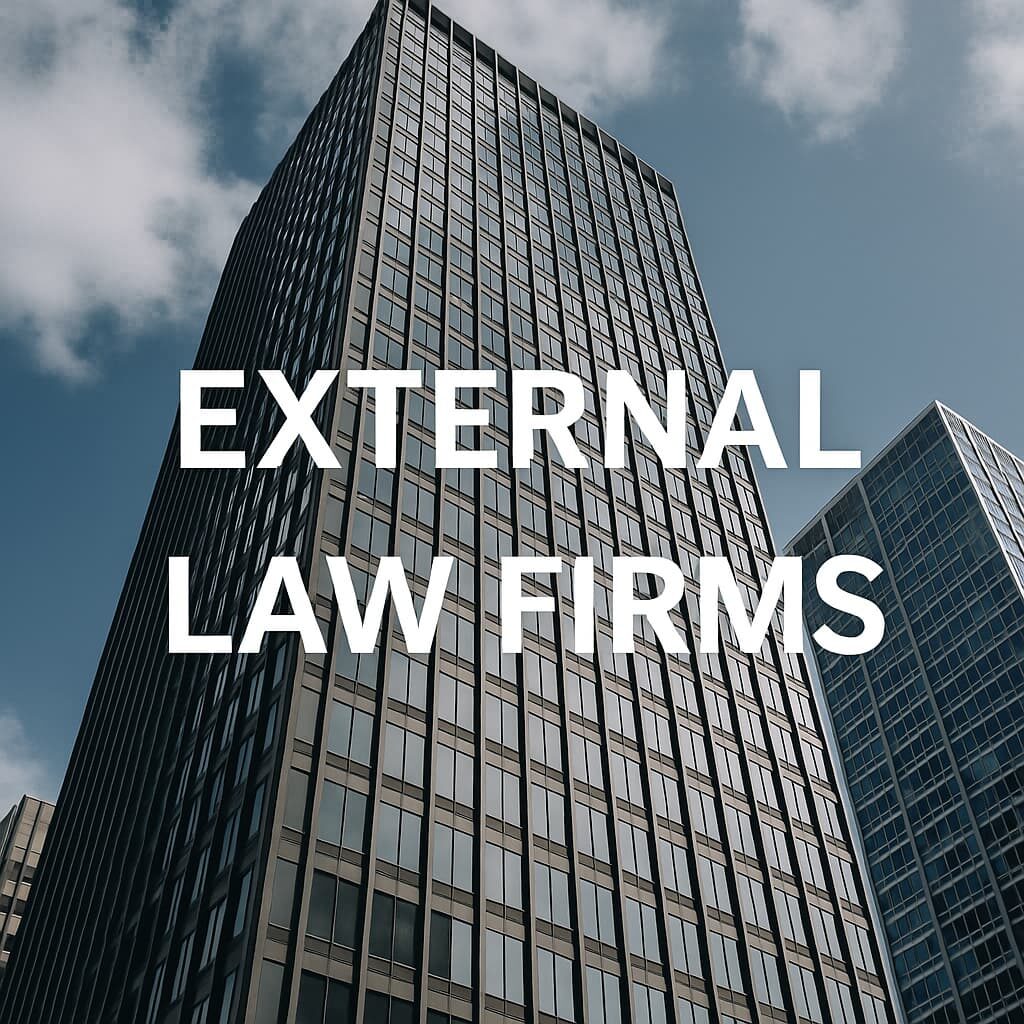
Types of Lawyers Companies and Brands Engage
Behind every growing brand or successful company is a legal team helping to keep things running smoothly and legally sound. Whether it’s handling a product recall, drafting a licensing agreement, or responding to a data breach, lawyers are essential players in protecting and advancing a business’s interests.
But not all legal professionals serve the same role. Depending on the company’s size, structure, and legal challenges, businesses may work with in-house counsel, external firms, or a blend of both. Understanding the differences is key to building a strong legal strategy that fits the organization’s goals and risks.
In-House Counsel: Legal Experts from Within
In-house counsel are lawyers directly employed by the company. They become part of the internal team, often working across departments and participating in strategic decision-making. Their value lies in deep familiarity with the company’s operations, products, people, and goals. This close connection allows them to manage legal risk before it escalates and to advise proactively on everything from marketing to supplier agreements.
The responsibilities of in-house counsel typically include reviewing contracts, ensuring compliance with labor and data protection laws, advising management on legal risks, handling internal investigations, supporting HR in employment matters, and coordinating with external law firms when specialized assistance is required.
One major advantage of in-house counsel is speed. They can respond quickly and align legal solutions with business strategy. However, they may have limitations in niche legal areas like international tax structuring, major litigation, or antitrust law.
External Law Firms: Specialists on Demand
External law firms are independent practices that companies hire for specific legal needs. These lawyers are often highly specialized and bring deep expertise in complex, high-stakes matters. Companies typically call on them for litigation, mergers and acquisitions, regulatory investigations, or when operating in foreign jurisdictions.
Because they are not embedded within the company, external lawyers provide a fresh perspective. Their advice is less likely to be influenced by internal politics, and they can leverage broader experience from across industries.
External firms are best suited for scenarios like lawsuits, government audits, intellectual property disputes, corporate restructuring, and cross-border transactions. They may work on a per-project basis or under a retainer agreement for ongoing consultation.
The downside is cost. Hourly rates for experienced external counsel can be high, and projects can quickly become expensive if not carefully managed. Additionally, external firms need time to understand the company’s structure and internal dynamics, which may slow down initial progress.
Comparison of In-House Counsel and External Law Firms
In-house counsel are employees of the company, integrated into daily operations and decision-making. They excel in routine legal matters, internal compliance, and long-term risk management. Their understanding of the company allows them to provide fast, contextualized advice and prevent problems before they arise.
External law firms, in contrast, are brought in for specialized or high-stakes matters. They offer legal firepower that smaller internal teams may not have. While more costly, their technical depth, resources, and objectivity are essential during crises, litigation, or large transactions.
Both types complement each other, and many companies use a hybrid model. In this approach, in-house counsel handles regular operations, while external experts are engaged for complex or infrequent matters.

When Companies Choose One or the Other
Startups and small businesses often rely solely on external lawyers during their early stages. As they grow, legal needs increase and justify hiring the first in-house counsel—usually someone who can wear many hats and serve as a generalist.
Midsize and large companies frequently operate with a small legal team in-house that handles contracts, compliance, and internal support, while maintaining long-term relationships with external firms for litigation, intellectual property, or complex transactions.
Heavily regulated industries like finance, health care, and energy may require ongoing interaction with government agencies, making both in-house counsel and regulatory-focused law firms essential.
Real-World Examples
In the tech industry, in-house lawyers review user terms, advise on intellectual property, and manage vendor contracts, while external firms are called in to navigate international data protection or handle software patent litigation.
Consumer goods companies use in-house legal teams to oversee marketing claims, product labeling, and labor issues. External lawyers step in for recalls, distributor disputes, or brand protection lawsuits.
Pharmaceutical companies may employ dozens of in-house counsel for regulatory compliance, but still need specialized external counsel to defend against class actions or to handle global patent portfolios.
Conclusion: Building a Smart Legal Strategy
Choosing the right legal support is not about picking one over the other—it’s about understanding what the company needs at each stage of its journey. In-house counsel offers embedded, real-time support. External firms provide specialized skillsets and scalability when the stakes are high.
The most successful companies don’t just hire lawyers. They build legal partnerships, ensure collaboration between teams, and invest in legal foresight—not just legal reaction. Whether through a robust in-house department, a go-to law firm, or a hybrid strategy, the right legal structure helps businesses move faster, act smarter, and stay protected.